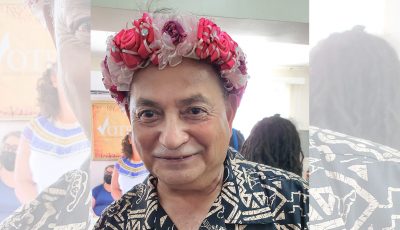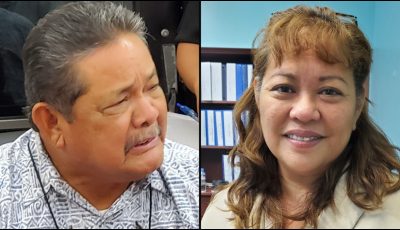JGO continues to assert legislative immunity
The House Committee on Judiciary & Governmental Operations, or JGO committee, stands firm in its belief that it is protected under the CNMI’ Constitution’s speech or debate clause, which provides it immunity from the lawsuit filed by the Office of the Governor and Gov. Ralph DLG Torres against it, warranting the court to dismiss the lawsuit entirely.
According to committee lawyers Joseph Taijeron and Brendan Layde, the JGO contests Torres’ previous request to deny the committee’s motion to dismiss the governor’s lawsuit.
Torres previously argued that because the lawsuit does not name any specific members of the committee, the immunity clause is inapplicable rendering the JGO’s motion to dismiss the lawsuit, moot.
However, Taijeron and Layde argue that legislative immunity attaches to the JGO as a body, not just its constituent members.
“The case law on legislative immunity, under both the common law and the Speech and Debate Clauses of various U.S.-affiliated jurisdictions’ constitutions, does not support the governor’s assertion that it is limited to individual legislators. Nor would the policy interest of legislative immunity be well-served if it could be so easily circumvented,” they stated.
The lawyers explained that the policy interest served by the legislative immunity clause would be defeated if plaintiffs could circumvent it simply by changing the case caption.
“As the governor would have it, the seven legislators of the JGO lose their legislative immunity when they are aggregated into the committee. But seven times one is seven, not zero. If plaintiffs ‘Ralph Deleon Guerrero Torres in his official capacity as governor of the Commonwealth’ and ‘the Office of the Governor’ had sought injunctions against members of the committee to enjoin them individually from enforcing the subpoena, the governor concedes legislative immunity would attach. Such immunity would be meaningless if it could be rendered a nullity simply by naming the JGO committee as a body instead,” they said.
The lawyers cited Orta Rivera v. Congress of the United States of America arguing that the U.S Congress’s own legislative immunity is not limited to individual members.
“Under the immunity granted by the Speech and Debate Clause of the Constitution, a federal court lacks power to command Congress or individual members of Congress to take legislative action,” the cases states.
The lawyers also cited a local case to justify that legislative immunity applies to the committee as a whole, specifically Millard v. Fifth Northern Mariana Commonwealth Legislature House of Representatives.
“This issue has already been litigated here in the Commonwealth. The Fifth Commonwealth Legislature was a named defendant as a body in the Millard case. The plaintiff filed a lawsuit to quash a subpoena by a special committee of the Legislature, and the court granted the Legislature’s motion to dismiss ‘on the ground that the complaint fails to state a cause of action, but also as an affirmation that the Legislature has the power to issue subpoenas in aid of its legislative functions,’” the lawyers argued.
Taijeron and Layde also cited In Sablan v. Tenorio, stating that the Ninth CNMI Legislature was also a named defendant as a body, and the trial court granted its motion to dismiss on the basis of absolute legislative immunity.
Last month, Torres asked the court to deny the JGO committee’s recent motion to dismiss his suit because their main argument allegedly does not apply to them as a whole to begin with.



























